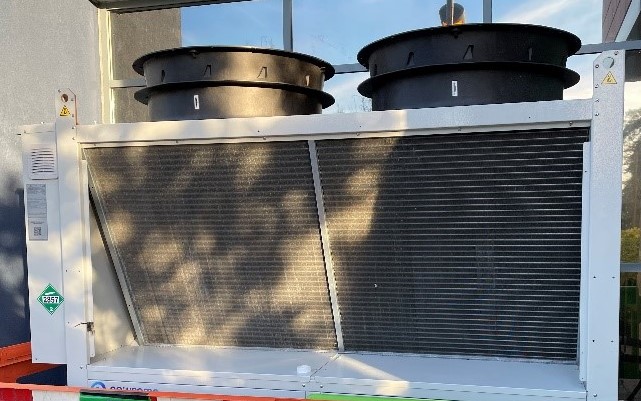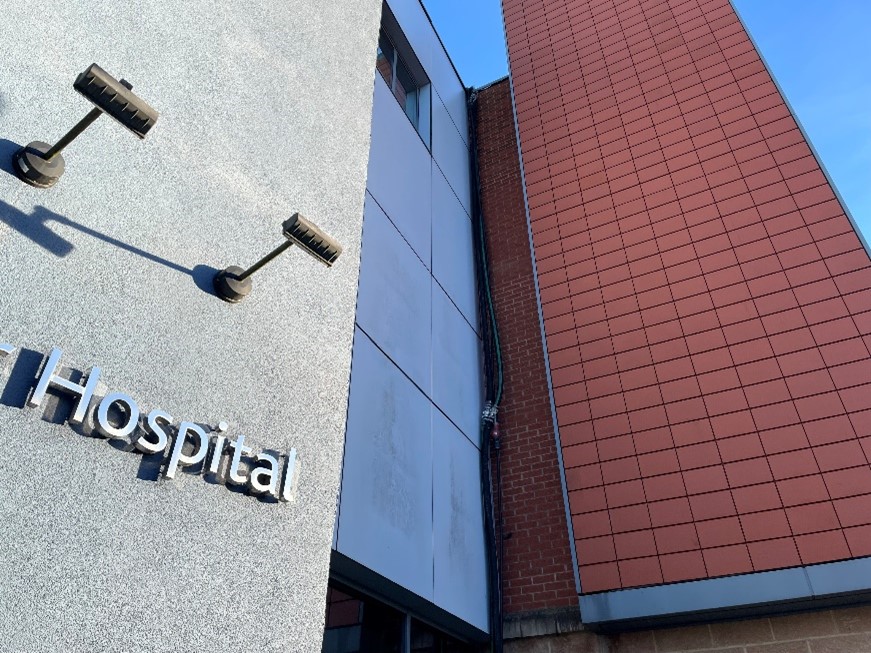A healthcare charity faced a critical situation when their MRI scanner cooling chiller malfunctioned. The MRI scanner’s functionality relied heavily on maintaining the necessary cooling for the helium inside, which, in turn, kept the magnets of the MRI cool. Without a properly functioning cooling system, the helium would overpressure and vent off, resulting in significant financial losses to replace it.
The Client
The Client is the United Kingdom’s largest healthcare charity. Established in 1957 the charity operates 31 Hospitals and 114 Health Fitness & Wellbeing Centres. It is independent of the National Health Service and is constituted as a registered charity.
Challenges
Urgent response required to minimise helium loss and ensure uninterrupted MRI scanner operation.
Need for a fast, safe, and efficient rental package to meet immediate needs.
Complexities involved in accessing and assessing the site for installation due to existing infrastructure and location constraints.
Solution:
In response to the critical situation at the Hospital, a leading national facility management company swiftly acted. Recognising the urgency of the matter, they engaged Newsome, a trusted partner renowned for their expertise in delivering rapid and efficient solutions for similar projects.

With a solid reputation and a track record of success, Newsome inspired confidence in the facility management company. They were confident that Newsome possessed the necessary skills and experience to effectively address the challenges at hand. The facility management company collaborated closely with Newsome, recognising the importance of a coordinated effort to tackle the issue efficiently.
By leveraging the expertise of Newsome and working in close partnership, the facility management company aimed to swiftly resolve the breakdown of the MRI scanner cooling chiller at the Hospital. This proactive approach highlighted the commitment of both parties to ensuring the uninterrupted operation of critical medical equipment and maintaining the quality of healthcare services provided to patients.
Implementation
Thorough Site Survey: Newsome conducted a comprehensive site survey to assess the feasibility of the installation, including evaluating the existing power supply and determining the necessary enabling works to access the steam system.
Installation Planning: Considering the location constraints, the chiller was strategically planned to be situated at ground floor level, with provisions made for it to rise up the building and onto the rooftop.
Mechanical Enabling Work: Newsome carried out the required mechanical modifications to ensure seamless integration of the chiller into the existing infrastructure.
Offloading and Positioning: The chiller was safely offloaded and positioned in accordance with the installation plan.
Electrical Supply: Newsome arranged for the provision of the necessary electrical supply to power the chiller.
Flexible Pipework Installation: Flexible pipework was installed to facilitate the connection and proper functioning of the chiller within the system.
Setup and Commissioning: Upon completion of the installation, Newsome conducted thorough testing, setup, and commissioning to ensure the chiller operated optimally and met the client’s requirements.
Outcome:
Thanks to the prompt response and efficient execution by Newsome, the clients Hospital was able to minimise helium loss and maintain uninterrupted operation of their MRI scanner. The FM company’s confidence in Newsome’s capabilities was reaffirmed, demonstrating the value of strategic partnerships in addressing critical infrastructure challenges effectively.
Conclusion:
The successful resolution of the MRI scanner cooling chiller breakdown at the Hospital highlights the importance of proactive planning, swift action, and reliable partnerships in ensuring the continuous operation of essential medical equipment. Newsome’s expertise and commitment to delivering innovative solutions played a crucial role in mitigating the impact of the emergency situation, ultimately contributing to the seamless delivery of healthcare services.

